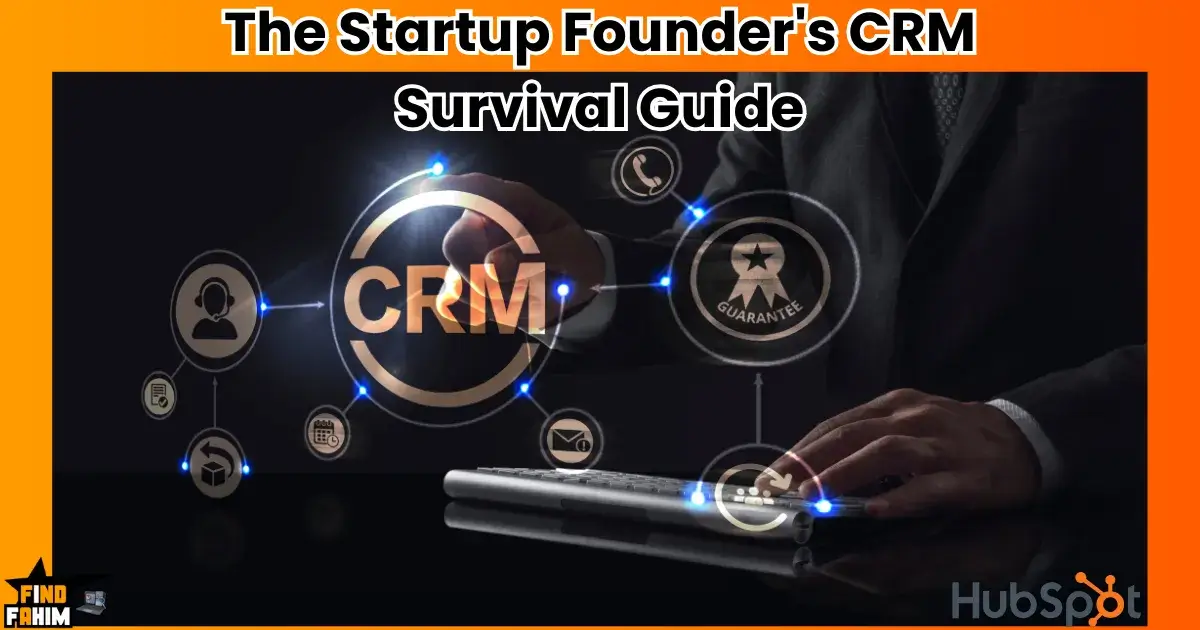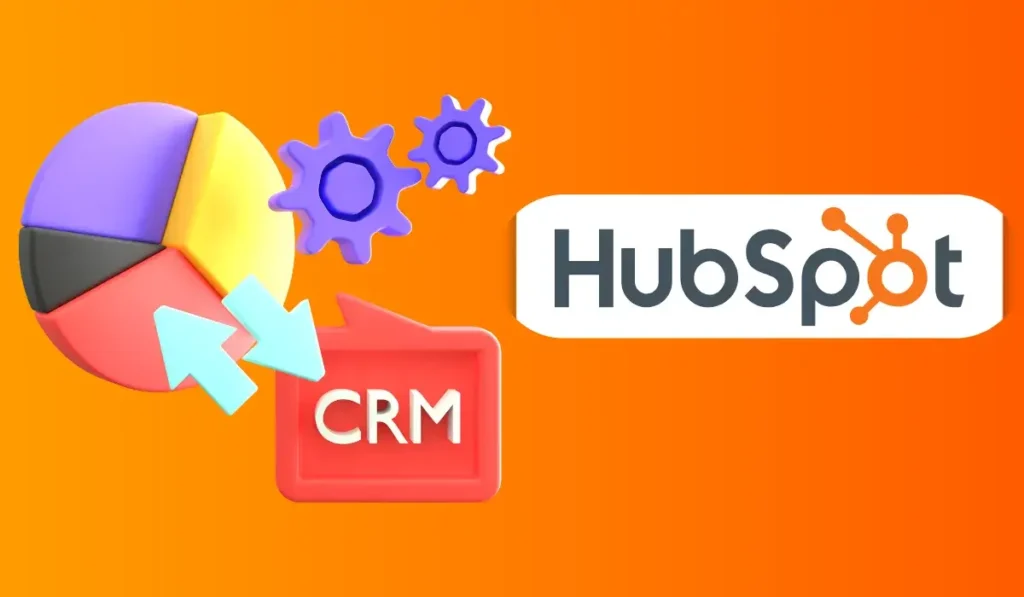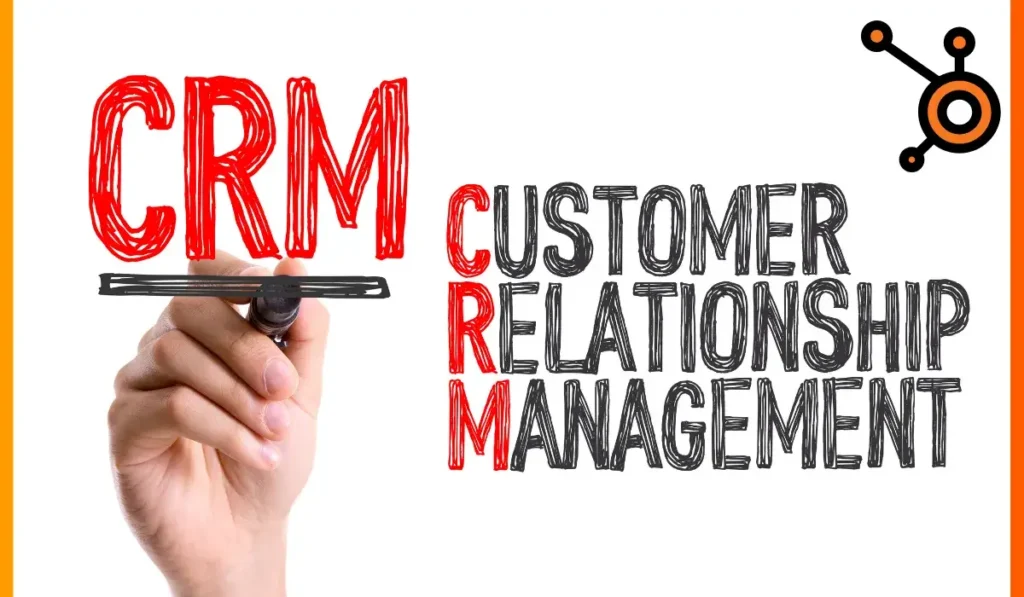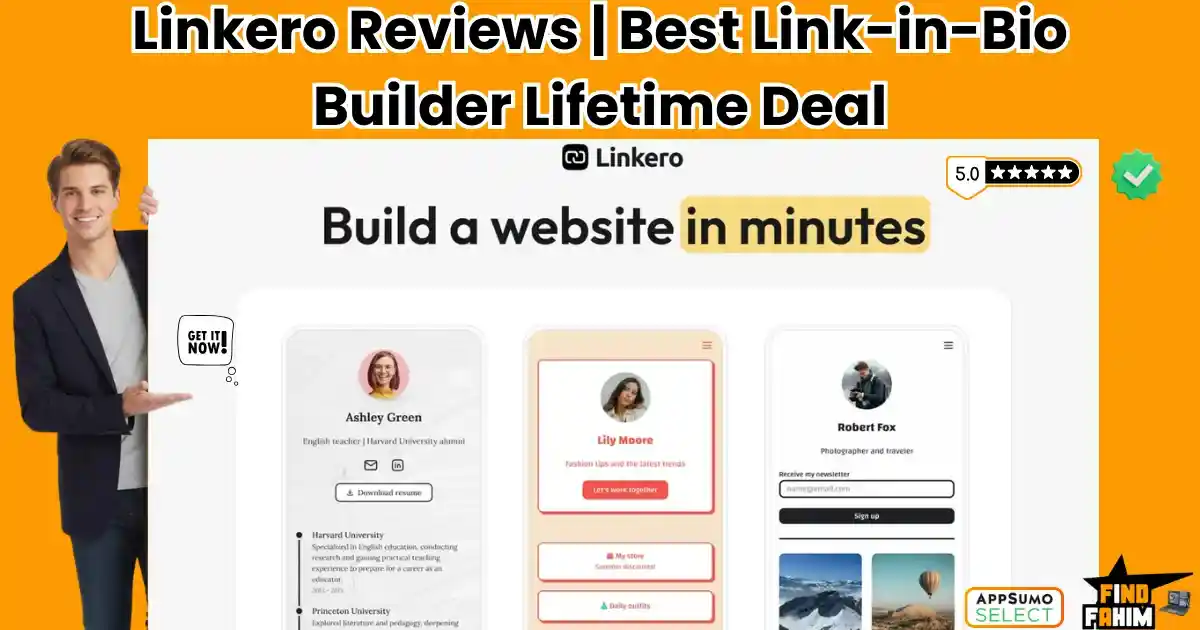Table of Contents
ToggleWhat Is a CRM & Why Does It Matter for Startups?
1. CRM in Simple Terms
When I first heard the term CRM, I thought, “Another tech acronym I don’t need.” But trust me, it’s more than just a fancy name. A CRM, or Customer Relationship Management tool, acts as a central hub for all your customer interactions.
Think of it as your business’s memory. It stores essential details like:
- Customer contact information
- Purchase history
- Communication records
Instead of juggling spreadsheets, sticky notes, and emails, a CRM keeps everything organized in one place, giving you more time to focus on growing your business.
2. Why Startups Need CRMs
Let’s get real—running a startup is chaos. You’re wearing ten different hats, trying to manage leads, respond to emails, and track sales. Sound familiar?
Here’s where a CRM saves the day. With a CRM, you can:
- Track leads and follow up at the right time
- Automate repetitive tasks (think email reminders or meeting schedules)
- Gain insights into your customer behavior
Studies show that businesses using CRMs see:
- A 29% boost in sales productivity
- A 34% increase in customer retention
Imagine closing more deals and keeping customers happier, all while spending less time managing the details.
3. What Happens Without a CRM?
Before I started using a CRM, my system was… well, non-existent. I relied on memory and scattered notes. One day, I completely forgot to follow up with a potential client who was ready to sign a deal. By the time I remembered, they had gone with someone else.
Without a CRM, you risk:
- Losing valuable leads
- Missing deadlines and follow-ups
- Frustrating your team and clients
A CRM doesn’t just organize your business; it protects your opportunities.
How to Identify Your Startup’s Unique CRM Needs
1. Start with Your Team
When I first chose a CRM, I made the rookie mistake of not asking my team what they needed. It turns out, they wanted better collaboration tools, while I was focused on lead tracking. Lesson learned: always involve your team.
Ask yourself (and your team):
- What’s the biggest pain point right now?
- Do you need features like task management or collaboration tools?
- How tech-savvy is your team? Will they need a simple interface?
Every startup is different. The right CRM for you depends on your team’s workflow and goals.
2. Budget Realities
As a startup founder, I know the importance of watching every dollar. But here’s the thing: a CRM isn’t an expense—it’s an investment.
That said, you don’t need to break the bank. Many CRMs, like HubSpot, offer free plans with enough features to get you started.
Questions to consider:
- How much can you realistically spend per month?
- Are you willing to upgrade as your business grows?
- Does the CRM offer a free trial or free tier?
3. Scalability
Picture this: your startup is thriving, and your customer base doubles in a year. Will your CRM grow with you?
Look for a CRM that can handle:
- More users as your team expands
- Larger amounts of customer data
- Advanced features you might need later, like marketing automation
When I chose my CRM, scalability was a top priority. I didn’t want to switch tools six months down the line.
Key Features to Look for in a CRM
1. The Essentials: Features No Startup Can Ignore
When I first started looking for a CRM, the sheer number of features overwhelmed me. But then I realized: I didn’t need every feature. I needed the ones that solved my problems. Here are the must-haves for startups:
- Contact Management
Imagine having every customer detail—email, phone number, purchase history—in one place. No more searching through emails or scattered notes. This feature helps you stay organized and build stronger relationships. - Pipeline Management
Think of this as your sales roadmap. It shows you where each lead is in the sales process, helping you focus on the ones ready to convert. - Task and Reminder Automation
How many emails did I forget to send before using a CRM? Too many. A good CRM will remind you to follow up or even send automated emails on your behalf. - Reporting and Analytics
Data doesn’t lie. With a CRM, you can see what’s working and what isn’t, helping you tweak your strategies for better results.
Pro Tip: When evaluating a CRM, think about your daily tasks. If a feature doesn’t make your life easier, it’s not essential.
2. Nice-to-Haves: Features That Elevate Your CRM Game
Once you’ve nailed the basics, consider these advanced features:
- AI-Powered Insights
Imagine a CRM that tells you which leads are most likely to convert. It’s like having a crystal ball for your sales. - Multi-Channel Communication
Can your CRM handle emails, social media messages, and phone calls? If not, you might miss opportunities. - Customizable Dashboards
I’m a visual person, so I love seeing my sales data in charts and graphs. A good CRM lets you customize dashboards to see the metrics that matter to you.
Quick Story: When I added multi-channel communication to my CRM, I closed a deal that started as a comment on one of my social media posts. You never know where your next customer will come from!
Comparing the Best CRMs for Startups
1. A Quick Overview of Top CRMs
When it comes to CRMs, there’s no one-size-fits-all. Here’s a quick comparison of the most popular options:
| CRM Tool | Best For | Starting Price | Key Features | Pros | Cons |
| HubSpot CRM | Beginners and small teams | Free | Contact management, email tracking | Easy to use, scalable | Limited advanced features |
| Zoho CRM | Budget-conscious startups | $14/user/month | Multichannel communication | Affordable, flexible | Fewer integrations |
| Salesforce Essentials | Growing teams | $25/user/month | Custom pipelines, AI insights | Powerful, customizable | Steep learning curve |
| Pipedrive | Sales-focused startups | $14.90/user/month | Visual sales pipelines | Intuitive interface | Lacks marketing tools |
2. In-Depth Comparisons: Which CRM Is Right for You?
Let’s dive deeper into what makes each of these CRMs unique:
- HubSpot CRM: The Free All-Rounder
If you’re just starting, HubSpot’s free plan is a no-brainer. It’s user-friendly, offers robust features like email tracking and lead management, and grows with your business. I started with HubSpot, and I loved how easy it was to onboard my team.
Best For: Startups on a tight budget who need a solid foundation.
Downside: You’ll need to pay for premium plans to unlock advanced tools.
- Zoho CRM: Affordable and Flexible
Zoho is perfect if you’re keeping an eye on your budget but still want excellent features like multichannel communication and AI insights. I’ve seen many friends in eCommerce thrive with Zoho because it fits their needs without breaking the bank.
Best For: Budget-conscious startups or those needing multiple communication channels.
Downside: Its interface can feel outdated compared to others.
- Salesforce Essentials: The Powerhouse
Salesforce is the Ferrari of CRMs. It’s powerful, highly customizable, and ideal for startups planning to scale quickly. However, it’s not for the faint-hearted—it takes time to learn, but once you do, the results are worth it.
Best For: Growing startups with complex sales pipelines.
Downside: Steep learning curve and higher cost.
- Pipedrive: The Sales Specialist
If closing deals is your primary focus, Pipedrive’s visual sales pipeline is a game-changer. It’s simple, and intuitive, and keeps your team focused on what matters—selling.
Best For: Sales-driven startups.
Downside: Lacks the marketing tools offered by competitors like HubSpot.
3. Decision-Making Tips: How to Choose the Best CRM for You
When I was picking my CRM, I asked myself these questions:
- What’s my immediate need—sales, marketing, or both?
- How much time do I have to train my team?
- What’s my budget, and can I afford to scale?
Pro Tip: Always take advantage of free trials. I tried three CRMs before settling on HubSpot. Testing them out will save you from costly mistakes.
The Step-by-Step Process to Choosing the Right CRM for Your Startup
1. Understand Your Business Needs First
When I started searching for a CRM, I immediately compared tools without understanding what my business needed. Spoiler alert: this approach wasted weeks of my time. Here’s what I learned:
Take a step back and evaluate your business. Ask yourself:
- What are my primary goals? Do I need to track leads, improve customer communication, or manage sales?
- Where am I struggling right now? Identify your bottlenecks. Are your emails getting lost? Is your team overwhelmed with repetitive tasks?
- How big is my team? Some CRMs charge per user, so knowing your team size can save money.
Quick Insight: When I focused on what I needed (streamlining communication), I realized I didn’t need a complicated tool—HubSpot’s free plan was enough to start.
2. Research and Compare CRM Options
Once you know your needs, do some research. Don’t just rely on flashy marketing—find a CRM that fits your workflow.
Here’s how I approached this:
- Read Reviews: Sites like G2, Capterra, and TrustRadius are great for real user feedback.
- Ask for Recommendations: I reached out to fellow entrepreneurs and asked, “What CRM do you swear by?”
- Take Free Trials: Nearly every CRM offers a free trial. Test at least 2-3 tools before deciding.
Pro Tip: Create a comparison sheet. List the tools you’re considering and rank them based on price, features, and ease of use.
3. Test the CRM with Your Team
Many startups make this mistake: They choose a CRM without consulting their team. I made this mistake once. The tool I picked was too complicated for my team, and they refused to use it.
Instead, involve your team in the testing process:
- Let them explore the tool and ask questions.
- Check if it integrates with the tools you already use (email, calendar, etc.).
- Look for intuitive features—if it feels clunky during testing, it’ll feel worse long-term.
4. Start Small and Scale
Don’t get overwhelmed by premium plans or unnecessary features. Start with a free or basic plan, then upgrade as your business grows.
For example, I started with HubSpot’s free plan to manage my contacts. As my startup scaled, I upgraded to access email automation and analytics.
Mistakes to Avoid When Choosing a CRM
1. Overcomplicating Your Needs
The first time I looked at Salesforce, I was impressed by all the features. But here’s the catch—I didn’t need 80% of them. Instead of choosing the most powerful CRM, focus on the one that solves your problems.
Common mistake: Buying a complex CRM because you think, “I’ll use it someday.” Start small and build up.
2. Ignoring Integration
I once chose a CRM that didn’t integrate with my email marketing tool. Big mistake. I ended up wasting hours transferring data manually.
Make sure your CRM works seamlessly with:
- Your email provider (e.g., Gmail, Outlook)
- Marketing tools (e.g., Mailchimp, HubSpot)
- Project management tools (e.g., Trello, Asana)
3. Choosing Price Over Value
I get it—startups are on tight budgets. But going for the cheapest option can cost you in the long run. Look for tools that offer the best value, not just the lowest price.
Here’s what I’ve learned: A CRM is an investment. Spending $20/month to save 5 hours a week is worth it.
4. Ignoring User-Friendliness
Even the best CRM is useless if your team won’t use it. Prioritize a tool that feels intuitive. If you need hours of training, it’s probably too complex.
Quick Story: I once introduced a CRM that required every team member to watch a 2-hour tutorial. Guess what? They never used it, and we wasted money.
Why Startups Need a CRM Sooner Than They Think
1. Growth Without Chaos
When my startup first began growing, everything felt exciting—until chaos struck. Emails were missed, leads slipped through the cracks, and I felt like I was juggling too many balls at once. That’s when I realized: growth without structure is a disaster.
A CRM is like having a central command center. It brings order to your chaos by:
- Organizing your customer data
- Streamlining communication
- Helping you prioritize your efforts
Imagine this: Instead of scrambling through spreadsheets, you open your CRM and instantly see which leads need attention. It’s a game-changer.
2. Building Relationships at Scale
When you’re small, you can afford to personally know every customer. But as you grow, this becomes impossible. A CRM acts as your memory, storing every detail about your customers.
Here’s how it helped me:
- I could track past conversations and tailor my pitches.
- Automated reminders ensured I never forgot to follow up.
- Personalization became easy, even as my customer base grew.
Quick Tip: Use your CRM to note small details about your customers—birthdays, preferences, or even their pets’ names. These little touches build loyalty.
3. Insights That Drive Smarter Decisions
Data is your best friend when growing a startup. Without it, you’re flying blind. A good CRM provides insights like:
- Which marketing campaigns are driving the most leads
- Which leads are most likely to convert
- Where your sales funnel is leaking
Pro Tip: Regularly review your CRM’s analytics. When I started doing this, I identified a bottleneck in my sales process and increased conversions by 20%.
Real-Life Success Stories of Startups Using CRMs
1. Story 1: From Overwhelmed to Organized
I met a startup founder, Emma, who was drowning in spreadsheets. She was managing 500+ leads manually, and it was a nightmare. After implementing a CRM (HubSpot, to be precise), she:
- Cut her lead response time in half
- Automated follow-ups, saving 10+ hours a week
- Increased her conversion rate by 35%
Emma told me, “I wish I had started using a CRM sooner. It’s like having an extra team member.”
2. Story 2: Scaling with Salesforce
Another friend, Ryan, runs a tech startup. He chose Salesforce because of its scalability. Here’s what he achieved:
- Built custom workflows to match his complex sales process
- Integrated the CRM with his marketing tools for seamless lead tracking
- Grew his team from 3 to 15 without losing efficiency
Ryan’s advice? “Invest in a CRM that grows with you. It’s worth every penny.”
3. Story 3: Saving Money with Zoho CRM
Not every startup has a big budget. Sarah, an eCommerce entrepreneur, started with Zoho CRM’s affordable plan. She used it to:
- Manage multichannel communication (email, social media, and phone)
- Track her inventory alongside customer data
- Save 25% on software costs compared to pricier tools
Her takeaway? “Don’t overlook affordable options. Zoho gave me everything I needed without breaking the bank.”
4. My Own Experience
I’ll be honest—when I first heard about CRMs, I thought they were just for big companies. But once I tried one, I realized how wrong I was. My CRM:
- Helped me respond to leads faster
- Made it easier to manage multiple projects at once
- Gave me insights that improved my marketing strategies
If I could go back, I’d start using a CRM from day one. It’s not just a tool; it’s a business partner.
Comprehensive Comparison of Popular CRM Tools for Startups
Choosing the right CRM is critical, and with so many options available, it can get overwhelming. Below is a detailed comparison of some of the most popular CRM tools tailored for startups.
1. HubSpot CRM
Why I Recommend It: HubSpot’s CRM is perfect for startups because it offers a free plan with no expiration and robust features that are ideal for beginners.
| Feature | Details |
| Pricing | Free (with optional paid tiers starting at $18/month) |
| Ease of Use | Extremely intuitive and beginner-friendly |
| Notable Features | Email tracking, contact management, lead scoring, and marketing automation |
| Best For | Startups with limited budgets and scaling businesses |
Pros:
- No-cost entry for startups
- Excellent integration with marketing tools
- User-friendly dashboard
Cons:
- Advanced features require upgrading to paid plans
- Limited customization in the free version
2. Salesforce Essentials
Why It’s Popular: Known for its scalability, Salesforce is a favorite for businesses that anticipate rapid growth.
| Feature | Details |
| Pricing | Starts at $25/month per user |
| Ease of Use | Moderate; may require initial training |
| Notable Features | Advanced sales forecasting, custom dashboards, automation tools |
| Best For | Teams ready to invest in a customizable, scalable CRM |
Pros:
- Highly scalable
- Powerful analytics and forecasting tools
- Industry-specific solutions
Cons:
- The steep learning curve for beginners
- Expensive for small teams
3. Zoho CRM
Why It’s Affordable: Zoho offers value for money with competitive pricing and a rich feature set.
| Feature | Details |
| Pricing | Starts at $14/month per user |
| Ease of Use | Simple interface; easy to set up |
| Notable Features | Multichannel communication, AI assistant, customizable workflows |
| Best For | Cost-conscious startups looking for a reliable CRM |
Pros:
- Affordable entry-level plans
- Customizable workflows
- AI-driven insights
Cons:
- Limited integrations compared to others
- Customer support can be slow
4. Pipedrive
Why It’s Unique: Pipedrive focuses on sales and pipeline management, making it ideal for startups driven by sales growth.
| Feature | Details |
| Pricing | Starts at $15/month per user |
| Ease of Use | Highly intuitive, especially for sales teams |
| Notable Features | Visual sales pipeline, activity reminders, goal tracking |
| Best For | Sales-focused startups |
Pros:
- Clear visual pipeline for sales management
- Easy-to-use automation tools
- Great for teams focused on closing deals
Cons:
- Limited marketing features
- Lacks robust reporting tools
5. Monday Sales CRM
Why It’s Flexible: Monday.com’s CRM is highly customizable, fitting businesses with unique workflows.
| Feature | Details |
| Pricing | Starts at $10/month per user |
| Ease of Use | User-friendly with drag-and-drop features |
| Notable Features | Workflow automation, task management, integrations |
| Best For | Teams needing a project management + CRM hybrid |
Pros:
- Highly customizable
- Combines project management and CRM functionalities
- Affordable entry price
Cons:
- Limited out-of-the-box CRM features
- Heavy reliance on integrations
Frequently Asked Questions About CRMs for Startups
Let’s address some of the most common questions that might be on your mind:
Can I Use a Free CRM and Still Be Successful?
Absolutely. Tools like HubSpot CRM and Zoho offer robust free plans. If your startup is just starting, these tools can handle the basics—contact management, email tracking, and basic reporting.
How Do I Convince My Team to Adopt a CRM?
From my experience, team buy-in is all about showing value. Demonstrate how the CRM will make their jobs easier:
- Sales reps: Highlight how they can track leads effortlessly.
- Marketing teams: Explain how the CRM integrates campaigns for better targeting.
- Management: Show the reporting and analytics for better decision-making.
What’s the Most Important CRM Feature for Startups?
I’d say it’s ease of use. A complicated CRM will discourage your team, no matter how many features it offers. Look for tools that offer intuitive interfaces and onboarding support.
Do I Need a CRM If My Team Is Small?
Even for solopreneurs, a CRM is invaluable. It keeps you organized, saves time, and ensures no lead or opportunity slips through the cracks.
How Can a CRM Save Time for Startups?
A CRM saves time by automating repetitive tasks like:
- Sending follow-up emails
- Logging customer interactions automatically
- Generating reports in minutes instead of hours
This automation allows your team to focus on building relationships rather than juggling admin work.
Can CRMs Integrate with Tools I Already Use?
Yes, most CRMs integrate with popular tools like Gmail, Outlook, Slack, and project management platforms like Trello or Asana. HubSpot, for instance, has over 1,000 integrations, allowing you to streamline your workflows.
How Do I Choose the Right CRM for My Startup’s Needs?
Start by listing your priorities:
- Budget: Are you looking for free or affordable options?
- Team Size: Do you need features for a small or large team?
- Must-Have Features: Do you need lead tracking, sales automation, or marketing tools?
HubSpot is a great all-rounder, offering both a free plan and scalable options.
Is HubSpot CRM Really Free Forever?
Yes, HubSpot’s free CRM is truly free forever, with no hidden fees. It includes powerful features like:
- Email tracking
- Lead management
- Pipeline visualization
As your business grows, you can upgrade to their paid plans for advanced features like marketing automation and sales forecasting.
Can a CRM Help Improve Customer Retention?
Absolutely! By keeping detailed records of customer interactions, a CRM helps you:
- Send personalized follow-ups
- Solve issues faster
- Offer a consistent customer experience
Happy customers = loyal customers.
What’s the Biggest Mistake Startups Make When Using a CRM?
The biggest mistake is choosing a CRM and not using it to its full potential. Many startups fail to:
- Train their team properly
- Integrate the CRM with other tools
- Regularly update and clean their data
Make sure your team understands how to use the CRM effectively and consistently.
Why HubSpot CRM Is Your Startup’s Best Bet
Choosing the right CRM is one of the most impactful decisions your startup will make. After diving deep into the features, comparisons, and success stories, if there’s one CRM I’d recommend without hesitation, it’s HubSpot CRM.
Here’s why:
- Scalable for All Businesses: Whether you’re a one-person startup or scaling into a large team, HubSpot grows with you.
- Intuitive and Easy to Use: From the moment I started using HubSpot, I felt like it was built for me—not for some tech wizard.
- Affordable Yet Powerful: The free plan is feature-packed, and you can upgrade as your needs evolve.
- All-in-One Solution: HubSpot doesn’t just handle CRM. It integrates marketing, sales, and customer service tools seamlessly.
Advice to Startups:
Start small but think big. Don’t wait for your business to grow before adopting a CRM—it’s the tool that will help you grow faster and smarter.
To make the most of HubSpot CRM, here are my top tips:
- Invest Time in Learning: HubSpot offers free tutorials and a robust knowledge base. Use them to train your team.
- Integrate Tools Early: Connect HubSpot with your email, social media, and project management tools for seamless workflows.
- Leverage Automation: Use HubSpot’s automation features to save time on repetitive tasks.
- Track Performance: Regularly review analytics to identify what’s working and where you can improve.
Remember, a CRM is not just a tool—it’s the backbone of your customer relationships and business growth. And with HubSpot, you’re not just investing in software but in a proven partner trusted by millions of businesses worldwide.
Your startup’s success starts with organization, personalization, and actionable insights—all of which a CRM like HubSpot can deliver. So, what are you waiting for? Leap, and let HubSpot guide your journey to greater efficiency, better customer experiences, and unstoppable growth.
Hi, I’m Fahim — a SaaS tools reviewer and digital marketing expert with hands-on experience helping businesses grow using the right software. I research, test, and personally use a wide range of AI, business, productivity, marketing, and email tools for my agency, clients, and projects. I create honest, in-depth reviews and guides to help entrepreneurs, freelancers, startups, and digital agencies choose the best tools to save time, boost results, and scale smarter. If I recommend it, I’ve used it — and I only share what truly works.










